Normandy has been popular with expatriates for years. Its stunning coastline, rich history, and famous gastronomy have attracted people worldwide to live in this spectacular part of France.
Brits especially favor the region for its proximity to the UK and easy travel connections.
But what is it really like living in Normandy? We’ve taken a closer look at this northern part of France.
What life is like in Normandy
In terms of lifestyle, Normandy has an excellent balance between urban and rural. Most of the department is dominated by rolling hills, fields of cows, sandy beaches, and, of course, the Seine River winding its way to Paris.
Normandy also has several major towns and cities, including Dieppe, Rouen, Le Havre, and Caen.

Much of life in Normandy is rural, and you’ll likely spend lots of time outside. Hiking, biking, horse riding, and water sports are common pastimes. However, the cities and towns are very modern and offer everything you could need and expect from city living.
Villages in Normandy are famously stunning.
Surprisingly, most old buildings survived the war or were lovingly restored, so it’ll be picturesque no matter which village you end up in. Normandy villages always look like some kind of old film set.
The area is strongly agricultural, which means not only is there plenty of fresh food, but you’ll also find families and friends harvesting crops, making cheese, and farming together, then sharing a meal en masse.
Because of this, community and family are interwoven in life here. Once you become a local, you’ll find your neighbors very welcoming, and you’ll never want to leave.
Of course, the area has a strong tourist presence in summer thanks to its famous beaches and landmarks from the World Wars. This brings in a large amount of money for the area, so it is generally very affluent, with many good schools, public services, medical facilities, and more.
Transport options are some of the best in France, with direct train lines into Paris, and the vast ports at Caen, Le Havre, Cherbourg, and Dieppe make international connections and imports easy.
All in all, Normandy offers one of the best lifestyles in France. No wonder it’s so popular.
The pros and cons of living in Normandy
To break it down simply for you, we’ve put together this list of the ultimate pros and cons of expat life in Brittany. Here’s what you should carefully consider before you move
The pros of living in Normandy
1. The landscape
Normandy really does have it all – stunning beaches, dramatic cliffs, picturesque villages, rolling hills, wild forests, and modern city centers.

It’s one of France’s most varied and beautiful parts, so if you appreciate a good view and like getting out into nature, Normandy is one giant playground.
2. The history
Although much of the history here is from the World Wars and is genuinely tragic, there are some fantastic sites to visit. You could live in the area for a decade and still find more to learn. The whole area is packed full of culture and history from medieval times, and it makes an excellent place to explore.
3. The food:
Thanks to the fertile soil, lush grass, and proud farming community, local food is incredible.
You will most likely buy your weekly food and veg from a local market. Meat comes fresh from local farms; bread is freshly baked, and fish is caught and cooked within hours. It’s foodie heaven, and we haven’t even talked about local cider.
The cons
1. The tourists
Normandy attracts tourists all year round thanks to the many war memorials, D-Day beaches, battlefields, and more. However, in summer, the area swarms with tourists. While this does bring in money, it can get noisy and crowded in some places.
2. The weather
We’ll start by saying it’s not that bad. In reality, it is lots of rain and fog and storms and short summers. If you plan to move to France for the sunny weather, you need to look further south.
3. Huge expat numbers
Some parts of Normandy are so flooded with British second homeowners and expats that you’ll find more Brits here than French.
Many restaurant menus are in English first, and if you’re looking to assimilate with French culture, you’ll be disappointed. Luckily, it’s only a few areas, and they are easy to find and avoid if you choose.
The cost of living in Normandy
With so much to offer, you’d be forgiven for thinking life in Normandy would be very expensive. But in reality, Normandy is a reasonably affordable place to live (another reason for its popularity).

Thanks to the strong agricultural industry, good local produce is very affordable. You’ll find weekly local markets the best places to buy fruit, veg, and meat. The prominent fishing industry means seafood is fresh, tasty, and easy to get on a cheap budget.
The huge ports mean importing foreign items is super speedy, and the only thing you’ll need to worry about is the government import costs.
If you plan to eat out or head to a bar, you’ll find all costs are relatively low. A good meal is possible at just €20 while a more expensive meal can be €60 per head. Local cider and beer are delicious and very cheap.
Housing
The most affordable aspect of Normandy is the property market.
Renting
On average, a two-bedroom, 1,000-square-foot (93-square-meter) apartment in Normandy can be rented for €620/month.
In more popular locations such as main towns, renting a good-sized 1-bedroom apartment will only set you back around €650, while renting a decent villa or a house can start from around €1,000, depending on the location.
You can find more information on renting and how to do it in our guide, Renting A Property In France.
Buying a house
If you’re looking to buy, a lovely family home in a village can cost as little as €100,000.
Stone houses and farmhouses in the country can be found for €160,000 and higher.
Most houses are detached, and a renovated, character home with a garden won’t cost more than €350,000.
On the other hand, if you are after something special, you can sometimes find a big beachfront villa for sale at prices around €1,000,000 and higher.
The most expensive areas in Normandy when it comes to housing are the following:
- Saint-Pierre-Lavis
- Terres-de-Caux and Saint-Pierre-Lavis
- Athis-Val-de-Rouvre
- Benouville
- Benerville-sur-Mer
Considering buying a home in France? Read our Complete Guide To Buying A Property In France to avoid potential pitfalls and disappointment.
Where to live in Normandy
If Normandy sounds like your dream location, we’ve narrowed down some of the best places to live in Normandy.
Thanks to its excellent connections and public services, basically everywhere offers a good life. You’ll never find it hard to register with a doctor, visit a local library, join a running club, or anything else.
In Normandy, it’s all about charm, good food, and good wine.
Barfleur
Barfleur has a tiny number of permanent residents, around 600 or so, and the village thrives on the summer tourists. But if you like seafood and want to live a quiet life by the sea, Barfleur is it.
It’s a small fishing community that is very tight-knit. Expect to eat a lot of seafood while drinking white wine if you move here.
Beuvron-en-Auge
Want the conveniences of a large town but without the noise and fuss? Beuvron-en-Auge is situated just outside Caen, but it has retained a medieval village’s old-world charm.

It’s surrounded by dairy farms, so cheese is a big part of life. This is the kind of village with multiple bakeries and a flower festival where people drink local cider. Picture perfect.
Caen
Speaking of Caen, the city itself is an urban hub for the area.
It has everything you could ever need from good schools (both English and French), a good hospital, an excellent commercial center for shopping, museums, art galleries, and more. For a port-based city, it’s relatively elegant and a delight to live in.
Deauville
Deauville is the Cannes of the North. The ritzy, luxurious seaside town attracts the rich and beautiful.
It’s a haven for wealthy Parisians leaving the city for the seaside break. The big attractions are stunning architecture, pretty streets, art and film festivals, and luxury shopping.
Deauville is energetic in winter and summer, unlike other villages, making it pleasant to live here all year round.
Honfleur
Honfleur is the stereotypical Normandy village. It’s the village everyone thinks of.
It’s a beautiful harbor town with stunning 16th-century architecture, streets that feel like a maze, beautiful rooves, boutique shops, and around 100 art galleries.
Honfleur is a cultural center. If you’ve dreamed of escaping to a small Normandy village, Honfleur is probably what you pictured in your mind.
Healthcare for expats in Normandy
As an expat residing in Normandy, you will have access to public healthcare, provided you are a legal resident and contribute to the French social security system, also known as ‘Sécurité Sociale’.
The social security system typically covers about 70-80% of medical costs, with the remaining amount paid by the patient or covered by complementary private health insurance, known as a ‘mutuelle.’
Many larger towns and cities within Normandy, such as Caen, have well-equipped hospitals and medical facilities.
However, health services in rural areas may not be as readily available, so make sure you have a plan for routine check-ups or specialized services.
Expat community in Normandy
Normandy has been a popular new home for expats for a long time. As such, there are lots of expat communities. Since so many people living in Normandy are either new residents or have second homes in the area, you’re more likely to find small communities rather than one large expat group.

Online platforms such as Facebook or Expat Forum are likelier to have lots of small groups for local book clubs, running clubs, sailing groups, or even wine and cheese tasting groups.
The expat community is generally sprawling and overlapping. You’ll probably find yourself running into other expats in the local pub, joining a group, and finding that your neighbor and local handyman are also part of the group.
If going digital to find like-minded people doesn’t appeal to you, you can get out and about, and like we said, you’ll run into people reasonably easily. Local mayors and town halls also have bulletin boards where you’ll find local news pinned up. It’s old-fashioned, but it works.
Things to know before you go
So, you’re ready to pack up and head to Normandy to start eating cheese, drinking wine, and hiking on the cliffs? We don’t blame you. But there are a few things you should know before you go.

As you might have guessed from reading this article, cheese and all things dairy are a large part of life here. While vegan options are readily available in the center of cities like Caen and Dieppe, you won’t find them in most of Normandy. If you’re vegan, be prepared to eat at home regularly.
Traveling long-distance is easy thanks to the ports, airports and train lines but local travel isn’t the best. You need your own transport or risk relying on buses, which are few and far between and, like most things in France, run on their own time.
Some of the more affluent villages can receive an influx of Parisians in the summer. Prices rise, terraces are packed, and you may experience lots of people judging you. Even though they don’t live in the area, the Parisians will be less welcoming than the locals.
Thunderstorms in the area are frequent and impressive. The huge cliffs and high winds coming from the channel create massive storms. Houses and tall buildings are regularly struck by lighting (Don’t panic, people don’t get hit), but if you’re afraid of storms or have a pet, you should be prepared for some scary nights during winter.
It sounds crazy, but grass in Normandy grows like nothing you’ve ever seen before. It’s the reason there are so many dairy farms; the cows can graze on luscious grass forever. But if you plan on having a garden, be aware that the fertile soil, gentle sun, and frequent rain mean you either have to embrace a wild garden or get ready to spend time taming it.
Cultural integration
You shouldn’t find it difficult to fit in in Normandy, mainly because the Normans are known for their friendliness and warm hospitality. However, as with any transition to a new country, learning the local language and customs makes a big difference to how quickly you are accepted in your local community.
Here are a few tips on how to make your integration a bit easier:
Get to know the local council and introduce yourself to the maire (mayor). Visit the office from time to time, even if only to enquire about coming local events. People will remember you, and you might get official invitations to attend meetings and events.
Your local tourist office can be a great source of information about local events, clubs, and activities.
Use your local shop for everyday groceries. Attend the local market and use as much of your French as possible, even if you need to revise and rehearse some phrases at home before you go.
Have you received an invitation to a community event? Accept it! Participate in local events such as New Year celebrations, planting flowers in communal areas, helping out with charity events, or participating in traditional festivals.
Find and join interest groups such as bridge, gardening, dancing, or walking.
Follow local websites for news and activities.
Use local French tradespeople, and ask for their recommendations if you need others.
Final thoughts on living in Normandy
Normandy is rich in history, culture, good food, and the countryside. It’s a popular destination for expats with a good balance of affordable urban centers and rolling hills.
While you’ll find summer much busier and more touristy, Normandy attracts visitors year-round, making it an affluent and bustling area.
If you’re planning to make the move, think hard about where you’d like to live: beach, city or small country village. If possible, visit a few places first.
If you’re really stuck, you could always just try the local cheese and base your decision on your favorite one!
Other popular expat destinations in France to consider:
- Living in Saône-et-Loire, France: What Expats Need To Know
- What It’s Like Living In Auvergne-Rhône-Alpes, France As An Expat
- What’s It Like Living In Provence, France As An Expat
- Discover What It’s Like Living In Toulouse As An Expat
- Living In Burgundy, France
You might find helpful:
- Living In France As An Expat Guide – the ultimate relocation guide full of practical information and tips on moving to France from the pros and cons to visas and residency, to the cost of living, healthcare, banking and more.
- The Best Places to Live in France – a detailed overview of France’s most popular locations for expats.
- Bank accounts in France for expats – what options you have and how to open a French bank account.
- See our complete France country guide archive.
- Didn’t find what you were looking for or need further advice? Comment with your question below, and we will do our best to help.

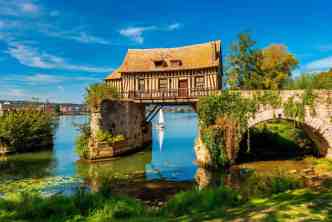
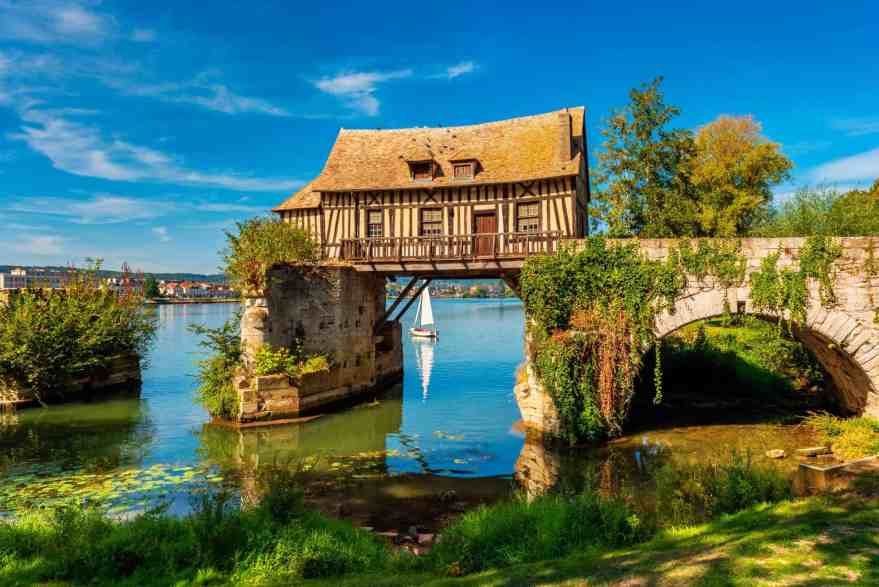
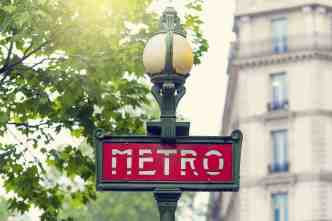
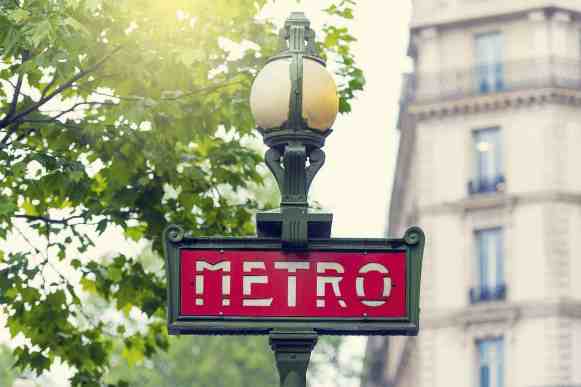
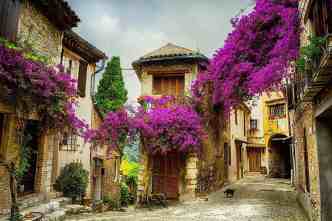
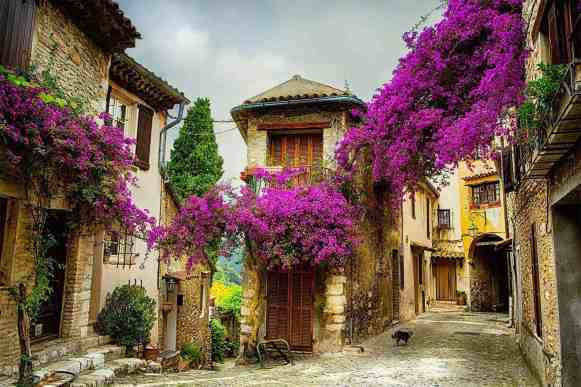


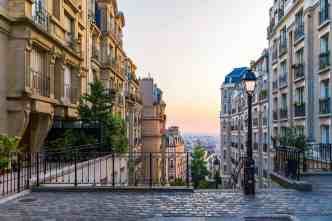
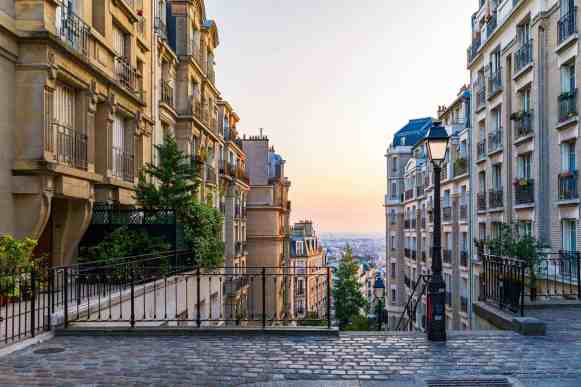


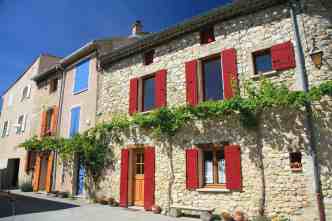
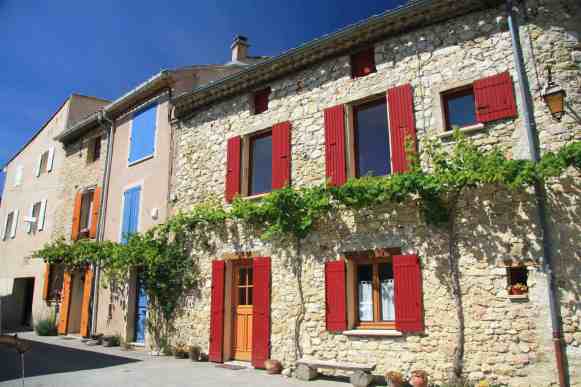
Bonjour,
J’ai lu l’article dans ouest france sur Kim et Mary installées en Normandie, j’ai trouvé votre démarche géniale. Je voulais me proposer si jamais vous aviez besoin de bénévoles pour accueillir des expats dans la Manche aux alentours de Carentan, faites-moi signe!
Bien à vous!
Ophélie
I’m hoping to find a property to look after short-term: I’d like to get a feel of the area before house-hunting. Happy to look after a house and perhaps a few animals (not too many!) for a few weeks. I’m a Londoner looking to move to Normandy, with 30 years building and maintenance experience: not looking for work, just offering a few hours in return for a place to stay. I’ve spent many summers in France, so I can speak very basic French. Where would you suggest I look or post? Thanks
Hi Bryan, the best way may be to join FB groups and offer your services there: Expats Normandy, Normandy anything and everything!, Normandy Neighbours. These are quite active groups, especially Normandy anything and everything! You might find some opportunities that suit you.
Wishing you all the best and good luck!
Hi Emily, Great post, thank you. We have lived in Bordeaux for the last two years (after moving from UK-Australia-USA-Bordeaux). I love the area here but it is crazy hot and we are seeking to potentially relocate up north. My question is, do you know anything about schools up there (age 13) – I’ve done a couple of searches but am not finding which are the best college in the area. Many thanks! Julie
Hi Julie, here’s a list of the best schools in Normandy, you can use it with google translate. Hope this helps https://www.linternaute.com/ville/lycee/normandie/region-28
As I am planning to view aproperty there in April 22
Hi is 1/8
Pont-d`Ouilly, Calvados, Normandy, France a nice place to live as an expats thanks
@Anthony borland, Pont d’Ouilly looks lovely, lots of walks and things to do in the summer, but what is it like during the winter?
Hi Michael,
I have used both WhatsApp and Zoom in the area with great success. Coastal regions are undoubtedly strong in terms of a signal as there are no physical barriers to block the signal. If you can get into a property and check signal, then obviously that’s great, but with most areas getting a good signal, I’d say it shouldn’t be your biggest worry. You can also buy signal boost boxes for the internet, which are inexpensive and work well. We have one that stretches the WIFI to the end of the garden, and we can make video calls using it. I’d say signal is something to bear in mind but not top of your list of things to worry about.
Thanks,
Emily
Emily, by the way….do you know about WhatsApp and ZOOM?
Thanks Emily…same as 10 years ago here in USA…which means it still varies (for reasons unknown) from area to area. Areas that should have it don’t and areas that it’s not needed, will sometimes have it….we cant really wait for fiber optic (with all its delays) to finally arrive. also, you cant always believe what landlords tell you. You really have to physically go the property and go INSIDE TO VARIOUS SPOTS to see if you can get a strong enough signal (2 bars minimum) …otherwise, you will very likely have dropped calls unless you sit in the yard. I have read other blogs that say if you are on or near the coastal towns you will have an adequate signal for cell phone….otherwise, you will not.
Hi Michael and Sondra,
Thanks so much for your comment. Normandy is lovely, so I’ve no doubt you’ll enjoy living there.
France is currently rolling out fibre optic for internet coverage, but it hasn’t reached some areas yet. Either way, the internet is good. I live rurally and can make video calls for hours without connection dropping. Depending on where you end up, you might already have fibre. Something to ask the mayor!
Mobile coverage is very similar to most countries; some areas have a better connection with one network than others. I would suggest getting French contracts once you’re here as I’ve always found them cheaper than other contracts (especially if you’re coming from the UK). But it’s worth waiting until you know where you will be living. Free mobile is very dominant in my village, but I get no signal at all just two towns over. I asked my neighbours, and they were happy to advise me so I would suggest the same. It was also a great way to show my neighbours that I was willing to talk to them – a conversation started and valuable information!
But in general, unless you get very unlucky and end up in an area with almost no coverage, it’s not something to worry about.
I hope this helps, and do let me know if you have more questions; I’d be happy to help!
Emily
Hello Emily and thanks for your well written article… We are hoping to soon re locate to Normandy ..please tell us about the internet reception in and cell phone reliability in Normandy. Is the internet fiber optic cable? or DSL? how long do you have to wait to get logged on? Also, in your own words and experience, can you expect to receive and make cell phone calls in a fast and reliable fashion with many calls being “dropped”?
Michael and Sondra Waggoner